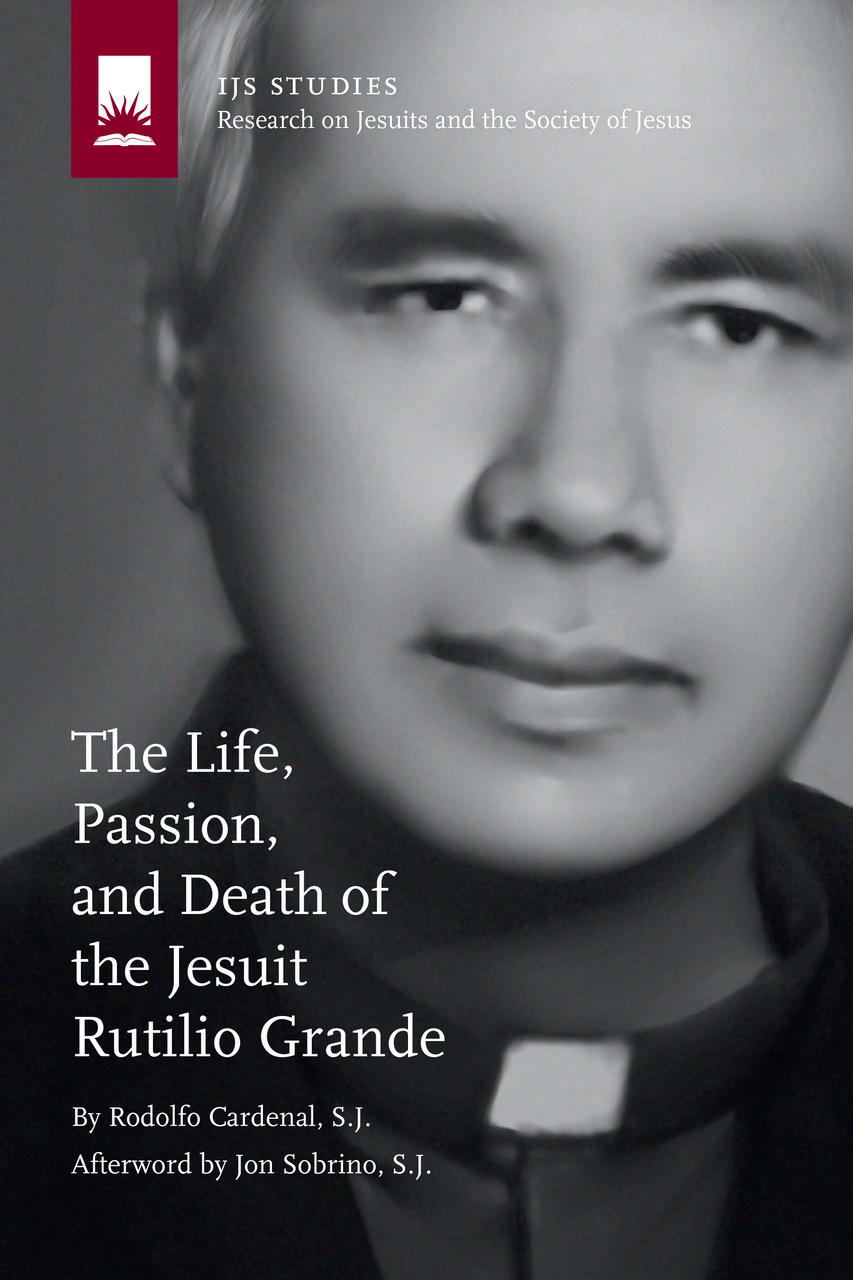Rutilio Grande

On January 22, 2022 Father Rutilio Grande, S.J., was beatified in San Salvador, El Salvador.
The following are various excerpts from the authoritative biography of Rutilio Grande:
Rutilio Grande (1928–1977) was born in the small town of El Paisnal on July 5, 1928. He was the youngest child of Salvador Grande and Cristina García. His father was a merchant and an important local political figure. After his parents separated, Rutilio was placed in the care of his grandmother Francesca, who he claimed "was for me a second mother since I did not know my own mother." According to Rutilio, Francisca was a very religioius woman, a "prayer leader" (rezadora), in common parlance. Rutilio credited her for setting the foundations of his own spiritual life and his priestly vocation.
On May 8, 1940, Rutilio wrote his first letter to Archbishop Luis Chávez, repeating his desire to be a priest. The archbishop responded four days later encouring him to persevere in his desire and telling him to pray to the Holy Spirit so that his "desires to be a priest will come true, if the Spirit so wishes."
Seeking to serve his people, Rutilio Grande entered the minor seminary of San Salvador in January 31, 1941. There he discovered the call and elected to join the Society of Jesus (the Jesuits). In 1945 he entered the novitiate at Los Chorros, near Caracas, Venezuela, and he pronounced his vows as a religious on September 24, 1947. His long process of formation as a Jesuit took him to Quito, Ecuador, to Panama, and to Spain. There, in Oña, he was ordained a priest on July 30, 1959. Rutilio celebrated his first Mass the next day, the feast of Saint Ignatius. He pronounced his final vows on August 15, 1964.
In his first years of apostolic life, Rutilio formed several generations of seminarians, inculcating in them a vocation of service and urging them to be faithful to the Gospel and to the Salvadoran people. He was among the priests who worked the hardest to ensure that the teachings of Vatican II and Medellín were accepted by the Salvadoran church. The great influence Rutilio had on the Salvadoran clergy, and on the archdiocese as a whole, helped prepare the path that Archbishop Óscar Romero later traversed during his three years as archbishop. It is said that Romero cannot be fully understood without understand Rutilio Grande.
Rutilio made a “primary and fundamental option” for the poor, and he dedicated the last four years of his life to proclaiming the Gospel and the justice of the kingdom among the campesinos of the parish of Aguilares, which at that time included the town of El Paisnal. He encouraged the formation of local Christian communities and trained laypeople as pastoral agents. In this way, he returned to his roots, to the people he had left three decades before, when he entered the seminary. It was there, among the people that his murderers found him. They snatched away his life as he was driving with an older man, Manuel Solózano, and a younger boy, Nelson Rutilio Lemus Chávez on March 12, 1977. Despite the risks he knew he was running, he did not want to abandon his people. “We must do what God wants” were his last words.


Credit: Jeackson Vargas
The Beatification
On January 22, 2022, Cardinal Gregorio Rosa Chávez of El Salvador celebrated the beatification ceremony for Rutilio Grande, S.J., two laymen, Manuel Solórzano and Nelson Rutilio Lemus, and Franciscan Father Cosme Spessotto. The four were beatified in an outdoor evening ceremony in the capital city of San Salvador.
“Rutilio, Manuel, Nelson and Cosme, those are the names of the innocent victims sacrificed on the altars of power, pleasure and money,” Rosa Chávez said. “The blood shed by our martyrs, associated with the sacrifice of Christ on the cross, is the seed of reconciliation and peace.”
Pope Francis has long spoken of his admiration for Grande and Romero, who he declared a saint in 2018. Francis is the first Latin American pontiff and first Jesuit pope. “Pope Francis told me that the great miracle of Rutilio was Monsignor Romero,” said Rodolfo Cardenal, S.J., a friend of Rutilio Grande and the author of the biography, The Life, Passion, and Death of the Jesuit Rutilio Grande, published in 2020.
Rosa Chávez continued by sharing how these matyrs provide powerful examples toward reconciliation and justice. “The martyrs that we venerate today, that is what they did: They continued the work of Jesus, announcing the kingdom and making it present during 30 years of humble shepherding, as Fray Cosme Spessotto did; or in the ministry of Father Rutilio, both in his work as a teacher to priests and his contact with the harsh reality of the peasants and the marginalized.”
Rosa Chávez said it was a matter of urgency to recover that historical memory. “I ask the Lord that this celebration will awaken us and set us toward the path,” he said. “Memory will lead us to fidelity, that is, to the path of holiness.”

Credit: Jeackson Vargas

